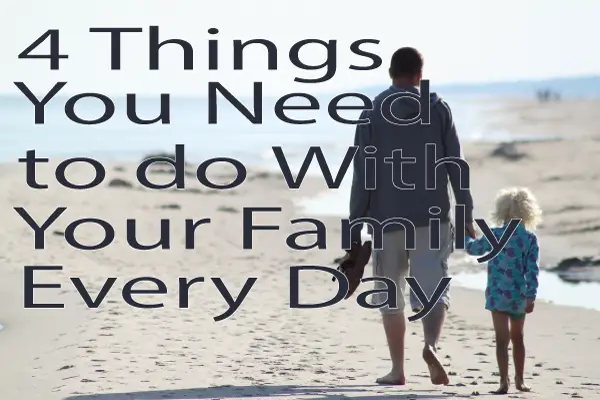Grace Changes Everything: The Radical Transformation of Saul to Paul
Have you ever wondered if someone is too far gone to be reached by God? Or perhaps you’re questioning if real transformation is possible in your own life? The story of Saul’s conversion on the Damascus road provides one of the most powerful examples of how God’s grace can radically transform even the most unlikely candidates.
The Empty Seat and Next Steps
Two important concepts to consider in our faith journey are the empty seat and next steps. The empty seat represents someone who has not yet heard or accepted the gospel of Jesus Christ. As long as God has His hand on us, our goal should be to reach just one more person with the gospel.
Next steps refer to growth. When someone connects with the church, how do we prioritize personal growth? Our prayer is for people to get planted, grow deep roots, and bear spiritual fruit. There’s something special about a group of people who have been changed by Jesus, who start to live like Jesus, and then lead others to Jesus.
Saul: The Church’s Greatest Enemy
In Acts 9, we encounter Saul (later known as Paul), who was “breathing threats and murder against the disciples of the Lord.” He was so determined to destroy the church that he obtained official letters from the high priest to hunt down Christians who had fled to Damascus.
Saul wasn’t just trying to discourage the church—he wanted to eradicate it completely. Christians had started fleeing Jerusalem because of his violent persecution, with many seeking refuge in Damascus. But Saul wasn’t going to let them escape that easily. With his paperwork in order, he set out to capture and destroy everyone who claimed the name of Jesus.
What Happens When Jesus Interrupts Our Plans?
As Saul approached Damascus, something extraordinary happened:
“Suddenly a light from heaven shone around him. And falling to the ground, he heard a voice saying to him, ‘Saul, Saul, why are you persecuting me?'” (Acts 9:3-4)
In this moment, God interrupted Saul’s plans. Despite having the authority to inflict substantial damage, Saul fell to his knees in the presence of true authority. When he asked, “Who are you, Lord?” the response was filled with grace and mercy: “I am Jesus, whom you are persecuting.”
This statement reveals something profound. Saul wasn’t hunting down Jesus directly—he was persecuting His followers. Yet Jesus took it personally, saying, “I am Jesus, whom you are persecuting.” This teaches us that when we hurt members of Christ’s body, Jesus views it as persecution against Himself.
How Does Change Happen in the Presence of Jesus?
Change happens in the presence of Jesus. The same person who wanted to destroy the name of Jesus was now obeying His every instruction. Saul’s days as a persecutor were over because grace intervened.
God could have stopped Saul in numerous ways. He could have destroyed him where he stood. Instead, by grace, He brought him into the family. The greatest persecutor of the church would become its greatest promoter.
The Role of Community in Transformation
God places us in community, and some of the biggest moments in our lives are made better because we get to share them with godly people. In this story, God brings in Ananias, a disciple in Damascus, to play a crucial role in Saul’s transformation.
When God instructed Ananias to go to Saul and restore his sight, Ananias was understandably hesitant: “Lord, I have heard from many about this man, how much evil he has done to your saints…” (Acts 9:13)
Ananias’s unspoken question was, “God, do you really know what you’re doing?” Have you ever asked that question before? But God assured him: “Go, for he is a chosen instrument of mine to carry my name before the Gentiles and kings and the children of Israel.” (Acts 9:15)
God settled the issue—He did indeed know what He was doing. Out of all the people He could have chosen, He chose the murderer. And we now know that God’s choice started a wave that would be felt all over the world.
Three Truths About God’s Transforming Grace
Grace goes to graceless places
Saul was not looking for Jesus. He was comfortable serving his own version of who he thought God was. In the Jewish mind, God’s presence wasn’t supposed to be felt outside Israel’s boundaries. Yet God’s presence showed up on the road to a pagan city.
God’s grace is meant to extend beyond our walls into graceless places. Jesus came to seek and save the lost, and He’s still about that same business. For whatever reason, He has chosen to allow us to be part of that endeavor.
Grace redeems the non-redeemable
Paul’s conversion gives us hope that no one is beyond the reach of God’s grace. We can see where Paul was and where he went—there is a radical difference.
Sometimes we don’t share or pray because we think certain people are beyond salvation. But God’s grace reaches the hardest hearts. He specializes in putting broken people back together.
Grace transforms the toughest hearts
God does more than just free us from sin and redeem us from death. He gives us a new life. As Paul later wrote, “In Christ we’re a new creation.”
We see three distinct changes in Paul after his encounter with Jesus:
A change of mind: Paul’s beliefs were directly challenged. He believed Jesus was dead until he met Him alive on the road. We need to let the truth of God’s Word change our minds.
A change of heart: Before meeting Jesus, Paul was “breathing threats and murder.” In an instant, his heart softened, and his hate, anger, and violent intentions melted away.
A change of actions: Paul’s agenda was hijacked. His old plan became irrelevant, and he replaced it with obedience to God’s call.
Life Application
As we reflect on this powerful story of transformation, consider these questions:
Do you need to find grace for the first time? If you’ve never put your faith in Christ, today could be the day you trust God for your future instead of trusting yourself.
Do you need to let grace change your heart, mind, or actions? Is there something you’ve held onto that you know you need to surrender to God?
Do you need to share grace with someone? If God has poured His grace into you, don’t keep it to yourself. Love people and share with them the message God has for them.
As we encounter the grace of God through His presence, we need to be transformed by it. Remember that no one—including yourself—is beyond the reach of God’s transforming grace. This week, look for opportunities to be both a recipient and a dispenser of that amazing grace.





